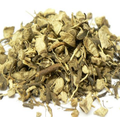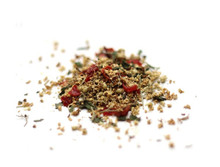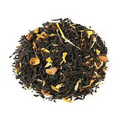 Loading... Please wait...
Loading... Please wait...- Home
- Herbal Teas
- Medicinal Remedy Teas
- Parasite & Worm Herbal Tea
Parasite & Worm Herbal Tea
Product Description
Parasite & Worm Herbal Tea
There are over 340 varieties of parasites can live in the human body. Many form large colonies inside the fold within the colon. Others attach themselves to the inner walls of the colon and small intestine.
Common Human Parasites are Protozoa, Amoebae, Flukes, and Worms. Blood flukes, liver flukes, lung flukes, and their tiny eggs usually enter the human body by drinking water which contains them. Drinking water can also contain the spore stage (oocysts) of microscopic parasitic protozoa like Giardia and Cryptosporidium, as well as parasitic amoeba.
Some common intestinal worms (called nematodes) are pinworms (also called threadworms), whip worms, hook worms, and roundworms. Tapeworms are a type of flatworm related to flukes. Tiny worm eggs or larvae are often found in the muscle tissue of animals and fish which humans eat as food; while others are transferred to the mouth by fecal-oral transmission, i.e. through contact with dirt or surfaces which have been contaminated with fecal matter containing the worm eggs. Pinworm eggs can be carried to the mouth on fingers, clothing and bedding.
Pin worms often cause a very annoying itch in the anal area, and they are very infectious. The female pin worms lay their eggs at night, coming out through the anus and depositing the eggs on the skin around the anus – and also in pajamas, underwear, and bed-sheets.
While laying their eggs the worms excrete a substance which creates a strong itching sensation on the skin, so the sleepy victim often scratches the anal area and picks up the eggs on their fingers and under the finger nails, and later transfers those eggs to the mouth – or to the pillows or bedclothes, where they can be transferred through contact to the mouth of another person. Sometimes the pinworms miss returning through the anus, and will enter and infect the vagina of a woman or young girl.
Roundworms can grow to be 14 inches long, and tapeworms can typically be 1 to 3 feet in length – and some up to 30 feet! These two can be acquired by eating improperly cooked meat which contains their eggs or larvae. The fish tapeworm can grow to a length of 33 feet or more, and it can produce more than a million eggs per day.
Whip worms are a nasty type of roundworm that injects a digestive fluid into the colon tissue, which turns it into a liquid which the worms then feed upon. It literally eats its human host! Fortunately, they are found only in tropical regions, but tourists can be infected while visiting tropical countries. Whip worms are also found in some areas of the southern USA where outdoor toilets are still in use. They are acquired by skin contact with the whip worm larvae which inhabit grass covered ground that has been contaminated with human feces – usually by walking barefoot.
Hook worms are like little vampires which feed on your blood and body tissue. Just one adult hook worm is able to drain one-tenth of a milliliter of blood from its human host per day. That means 1000 of them could cause an infected human to lose a tenth of a liter of blood per day, or a liter in ten days. As part of their life cycle, hookworms travel through the bloodstream and into the lungs, where they can cause symptoms similar to asthma or bronchitis, and then eventually cause severe coughing which gets them expelled into the throat where they can travel down through the stomach and into the small intestine.
Some parasites such as flukes, pork tapeworms, Toxoplasma gondii protozoa, and Candida yeast, travel to other tissues and organs such as the liver, heart, and even the brain.
There is a suspected link between parasites in the brain and certain diseases such as schizophrenia (bipolar disease) and encephalitis.
An infection by parasites in the human body is called human helminthiasis.
The most common helminth (parasite) species are:
Ancylostoma duodenale, Necator americanus, Ascaris lumbricoides, Brugia malayi, Brugia timori, Hymenolepis nana, Onchocerca volvulus, Paragonimus westermani, Schistosoma haematobium, Schistosoma mansoni, Strongyloides stercoralis, Taenia saginata, Taenia solium, Trichuris trichiura, Wuchereria bancrofti.
Some helminths which are found worldwide but are less common include: Diphyllobothrium latum, Echinococcus granulosus, Echinococcus multilocularis, and Taenia solium.
An estimated 150 million Americans have intestinal parasite infestation, and over 55 million American children have worms. Ascaris Lumbricoides, a large roundworm, is the most common nematode parasite found in humans, infecting an estimated 1.47 billion individuals world-wide.
Five species of parasitic amoebae which are pathogenic to humans are:
Entamoeba histolytica, Naegleria fowleri (the brain-eating amoeba found in warm freshwater lakes in the southern USA), Acanthamoeba, Balamuthia mandrillaris, and Hartmannella.
Where do these human parasites (helminths) live in our bodies?
- Alimentary tract (digestive system): 197 species
- Cavities, organs and tissues: 107 species
- Circulatory system (blood and heart): 21 species
- Skin and tissues: 56 species
Parasites sap our strength and weaken our immune system. They steal nutrients from the food passing through our GI tract and leave us malnourished and sluggish – even when we eat healthy foods. Some chronic ailments such as allergies, arthritis, and chronic fatigue have been linked to an infection by parasites.
Because the epithelial cells in the lining of the colon lead directly to the bloodstream, tiny parasites (and toxins) in the intestines can sometimes enter the blood and travel to vital organs like your liver, kidneys, lungs, and heart.
The pork tapeworm (Taenia solium) can cause some serious and even fatal medical conditions which are very hard to diagnose because this parasite prefers to reside not in the intestinal tract or muscles of humans, but in the central nervous system, where the larvae can form cysts in the spinal cord and brain, and sometimes the eyes. As the larva grows and the cyst which protects it as it enlarges, this can produce pressure inside the brain or spinal cord, which can lead to epileptic seizures or other neurological problems such as paralysis.
Larval cysts in the eye can impair vision or cause blindness.
Flukes (such as liver flukes and lung flukes) and other parasitic nematodes (worms) also migrate to various organs and tissues in the human body.
Some common symptoms which may indicate the presence of intestinal parasites (helminthiasis):
- lethargy and slow reflexes, feeling tired all the time (chronic fatigue)
- neither you nor your doctor can figure out why you just don’t feel well
- depression
- gastrointestinal symptoms, bulky stools with excess fat in feces
- digestive problems such as gas, bloating, constipation, or diarrhea that come and go but never really clear up irritable bowel syndrome (IBS)
- burning sensation in the stomach
- anemia or iron deficiency (pernicious anemia)
- eating more than normal but still feeling hungry
- difficulty in losing or gaining weight no matter how you try
- excessive number of bacterial or viral infections
- tried a program to get rid of a Candida yeast infection which didn’t help (or it keeps coming back), and you still have cravings for bread, fruit, fruit juices, or alcohol
- headaches
- restlessness or anxiety
- fast heartbeat, heart pain
- insomnia, multiple awakenings during the night (particularly between 2 and 3 am)
- bed wetting
- teeth grinding and drooling during sleep
- transmandibular jaw syndrome (TMJ) depressed immune system
- constant coughs and colds joint pain, muscle pain, and arthritis-like symptoms
- pain in the back, shoulders, and thighs
- pain in navel area
- numbness in hands
- skin ailments such as hives, rashes, weeping eczema, itchy dermatitis, acne, cutaneous ulcers, sores, papular lesions, inflammation or swelling
- allergic-like reactions with no apparent cause
- itchiness in ears, nose, and anus food allergies, food sensitivities, environmental intolerance or over-sensitivity (to smoke, chemicals, perfumes, etc.)
- loss of appetite or strong cravings for greasy foods and sugary foods
- forgetfulness, lack of focus, lack of clarity in thinking sexual dysfunction in men
- menstrual cycle problems in women
- hyperactivity and nervousness in children.
Can you see how ridding the body of parasites by drinking Parasite & Worm Herbal Tea may help relieve many of the above symptoms which are caused by parasites?
A medical parasite treatment may require many different parasite medications and pharmaceutical drugs which kill the various species of parasite. Some people prefer to try an alternative herbal parasite cleanse which cleans their colon and digestive tract of parasites and also removes the impacted fecal matter which many kinds of worms and intestinal parasites feed upon. High enemas and colonic irrigation treatments can help, but they do not reach the small intestine where an intestinal parasite like the Giardia parasite lives and keeps causing diarrhea, gas, bloating, and cramping.
Patients may find that just drinking Parasite & Worm Herbal Tea is a simple, easy, and comfortable way to help remove all kinds of parasites from the body.
This tea includes the following herbs: Black walnut hulls (Juglans nigra), Wormwood (Artemisia absinthus), Clove Buds (Caryophyllus aromaticus L.), Quassia Chips, Cinnamon bark (Cinnamomum cassia), Senna Leaf, Elecampane Root and Stevia.
Suggested Use: Place 1 teaspoon into a tea infuser and add boiled water. Allow the tea bag to steep for 4 minutes. Cool to suitable drinking temperature. Add sweetener of choice Drink and enjoy warm or cold.
How Long Until I See Results?
Great question. Results may vary from person to person as there are various external and internal factors that may influence each persons experience while using this product. Some of our customers may see immediate results, while others have achieved great results within 2-4 weeks. We would suggest that you don't get discouraged as your body will begin to respond to the herbs that are being introduced to it, some of them probably for the first time.
Get Optimum Results with Regular Use
We suggest that you take this product consistently, and as specified. This means that you should allow the herbs enough time to build up within your system, and thus become effective. Even after you feel as though your main cause of complaint has subsided, you may find that it is beneficial to continuously take a smaller dose for ongoing maintenance and support. Many of our customers take a regular dose as part of a preventative program in order to insure optimal health.
Disclaimer - The information presented herein by Mountain Maus’ Remedies is intended for educational purposes only. These statements have not been evaluated by the FDA and are not intended to diagnose, cure, treat or prevent disease. Individual results may vary, and before using any supplements, it is always advisable to consult with your own health care provider.

















